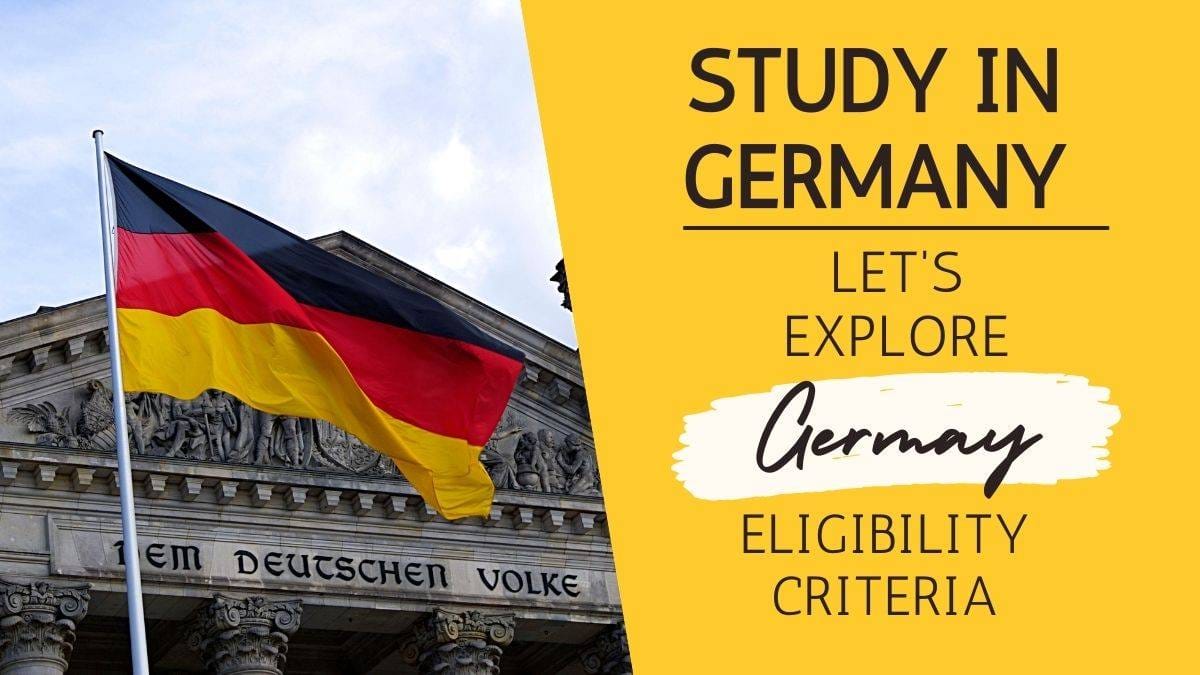The Complete Guide to Study in Germany
Germany, the land of innovation, engineering, and academic excellence, has firmly established itself as one of the top destinations for international students. With world-class universities, tuition-free education, and a strong job market, it’s no surprise that more than 400,000 international students are currently pursuing higher education in Germany.
If you’re considering studying in Germany – this complete guide will walk you through everything from choosing the right program to getting your visa approved.
Why Study in Germany?
World-Renowned Education: Home to top QS-ranked universities like TUM, Heidelberg, and KIT.
Affordable Tuition: Most public universities charge no tuition fees for international students.
English-Taught Courses: Over 2,000 programs in English, especially at the master’s level.
Post-Study Work Opportunities: 18-month stay-back visa for job hunting.
Pathway to PR: Clear routes to permanent residency and eventual citizenship.
Safe, Central Location in Europe: Explore 26 Schengen countries with a German student visa.
Get Free Career Counseling & Admission to Top Universities
Types of Universities in Germany
Universities (Universitäten) – Focus on theoretical research and academics.
Universities of Applied Sciences (Fachhochschulen) – Practice-oriented, ideal for career-focused students.
Technical Universities (Technische Universitäten) – Specialized in engineering and technology.
Colleges of Art, Film & Music – For creative arts students, often with separate admission criteria.
Popular Courses in Germany
Germany is particularly known for:
Mechanical, Automotive, and Electrical Engineering
Computer Science & AI
Business & Management
Physics and Natural Sciences
Architecture & Urban Planning
Renewable Energy & Environmental Studies
Medicine & Life Sciences (Note: For medicine, knowledge of German is required)
How to Choose the Right University?
When selecting a university, consider:
Language of Instruction: English or German?
QS Ranking & Reputation
Course Content & Research Opportunities
Location & Cost of Living
Job Market in the Region
Popular universities among international students:
Technical University of Munich (TUM)
RWTH Aachen University
Karlsruhe Institute of Technology (KIT)
University of Stuttgart
Ludwig Maximilian University of Munich (LMU)
Admission Requirements
Master’s:
- 4-year bachelor’s degree (ideally with minimum 70%)
- IELTS (6.5–7 band) or TOEFL (90+)
- Statement of Purpose (SOP)
- Letters of Recommendation (LORs)
- CV (in Europass format)
- Some programs require GRE/GATE
Bachelor’s:
- 13 years of education (usually needs a Studienkolleg if from CBSE/State boards)
- Strong academic performance
- Proof of German language (B1–C1 for German-taught courses)
- IELTS/TOEFL for English-taught programs
Tuition Fees & Living Costs
Tuition Fees:
Public Universities: Mostly free (except ~€150–€350 semester fee)
Private Universities: €5,000–€15,000 per year
Living Expenses:
Average: €850–€1,100 per month
Major expenses: Rent, food, insurance, transport
Cities like Munich and Frankfurt are costlier than Leipzig or Dresden
Get Free Career Counseling & Admission to Top Universities
Part-Time Jobs & Post-Study Opportunities
120 full days / 240 half days of part-time work annually
Popular roles: Research assistants, retail, cafes, internships
Minimum wage: €12/hour (2025 rate)
After Graduation:
18-month job search visa
High demand for STEM graduates
Path to Blue Card and PR
Visa & Blocked Account
Student Visa Checklist:
University admission letter
Valid passport
Proof of financial resources: Blocked Account (~€11,208/year)
Health insurance
Language proficiency
Academic transcripts
Visa Process Timeline:
- 3–6 months including appointment booking, documentation, and processing
Accommodation in Germany
Student Dormitories (cheap but competitive)
Private Apartments
Shared Flats (WG – Wohngemeinschaft)
Start searching early on platforms like WG-Gesucht, Studentenwerk, or directly via university housing offices.
Language & Cultural Integration
While many courses are in English, learning German boosts job prospects
Free or low-cost German classes are available
Culture is punctual, structured, and egalitarian—adaptability helps!
How GCQ Study Abroad Helps
At GCQ Study Abroad, we guide you through:
University selection (based on budget, course & ranking)
Application & documentation support
Free IELTS preparation
Blocked account & visa process
Accommodation and pre-departure guidance
Mentor support even after you land in Germany
Final Words
Studying in Germany is more than just getting a degree it’s an investment in your future. With its unmatched combination of affordability, global exposure, and quality education, Germany is a destination that truly transforms students’ lives.
Let GCQ Study Abroad be your bridge to Germany! 🌍

📞 Ready to Apply?
Fill out our free counseling form or WhatsApp us directly to speak with a dedicated mentor who will walk with you every step of the way.

















